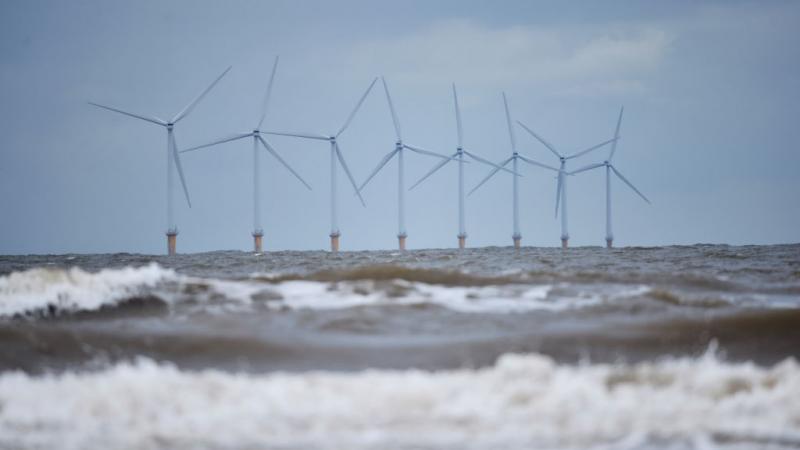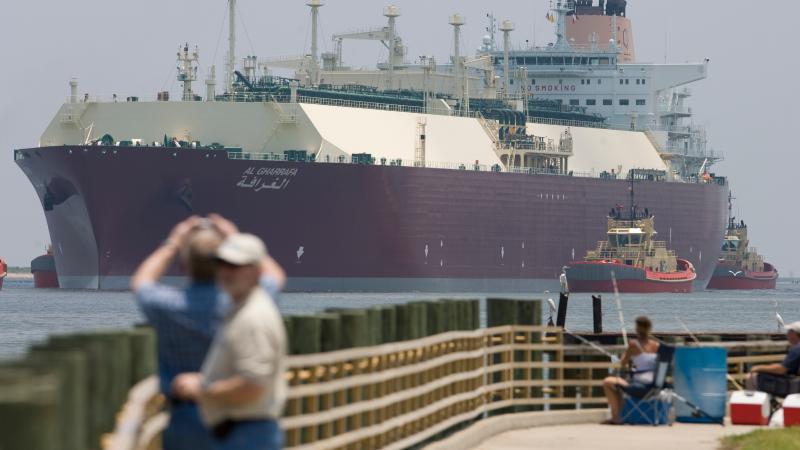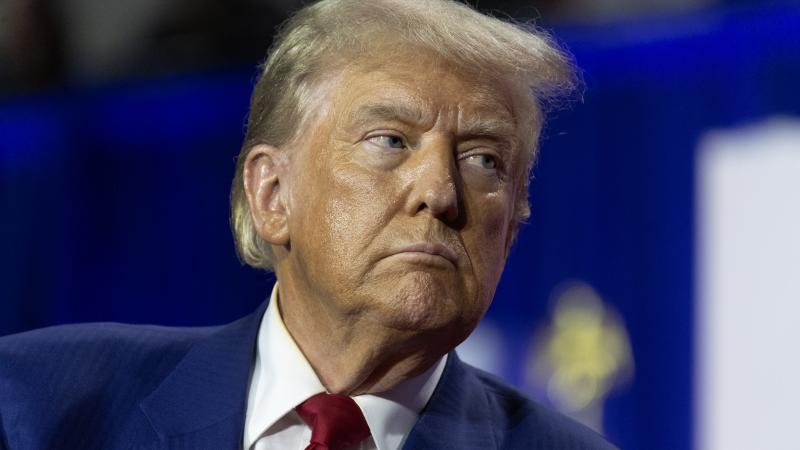Biden's promise to end fossil fuels has led him to seek oil anywhere but at home
Biden has had to walk a tightrope between environmentalists who want to stop oil and voters who don't want to pay too much at the pump. He's had to travel far and wide to find oil.
President Joe Biden campaigned on a promise to end fossil fuels. And while much has been done to make it difficult for American oil and gas companies to produce domestically during his administration, the demand for oil in the U.S. has remained fairly constant.
Under the Trump administration, the U.S. became a net exporter of oil for the first time in 75 years, largely driven by the shale revolution.
Biden, on the other hand, has had to balance his promises to end fossil fuels with the blowback he has received from voters irritated by how much they have to pay at the pump. Whenever he’s opened up more production in the U.S., he’s faced criticism from his base. So, he’s gone looking for oil elsewhere.
As gas prices rose in the months leading up to the midterm elections of 2022, Biden tapped the nation’s energy stockpile, known as the Strategic Petroleum Reserve, dropping it to its lowest level in 40 years. In June 2022, Biden went so far as to ask U.S. producers to increase production, despite promises by his administration to keep it to a minimum.
To find enough supply to meet demand, Biden has negotiated with and sometimes begged foreign producers, an effort that hasn’t gone over well with the U.S. oil and gas industry.
Biden entered office almost a year after the pandemic wiped out energy demand across the globe. Production and export rates from all the major producing countries collapsed, only to rebound as the demand grew again.
The Russian invasion of Ukraine added more complexities to the global oil market. Russian production rates peaked at 10.4 million barrels per day in 2019, and then fell to nearly zero in 2020, according to CEIC, which bases its charts on OPEC data.
Unlike other major oil-producing countries, Russia’s production never fully recovered in the years following the pandemic. In 2022, the nation produced 9.8 million barrels of oil per day. Europe found itself cut off from Russian natural gas, which led to an energy crisis throughout the continent. The problems persist today, and Britain, the Netherlands, and Germany are seeing falling public and political support for such "scaling back" policies, according to Bloomberg.
Russia’s exports hit 5.2 million barrels per day in 2019, but only reached 4.8 million barrels per day in 2022.
Almost half of that is being sold to China, the second largest consumer of oil after the United States.
Reuters reported that 40% of those supplies come to China via the 2,540-mile East Siberia Pacific Ocean pipeline, which was financed with $50 billion in Chinese loans. China has resisted calls from the West that it stop providing that revenue stream to Russia, Reuters reported.
As the war in Ukraine sent energy prices soaring, in July 2022, Biden sought help from Saudi Arabia’s Mohammad bin Salman, the nation’s crown prince, whose nation has a questionable human rights record. Biden had hoped to convince the Saudis to delay production cuts, but in October OPEC announced production cuts of 2 million barrels per day.
Before the pandemic, Saudi Arabia briefly produced 11.6 million barrels per day, according to CEIC, a commercial database. The pandemic brought their production down to approximately 750,000 barrels per day. When Biden was asking for help with energy prices, the Saudis had increased production back to 11 million barrels per day, and as of August 2023, it was producing 9 million barrels per day.
The Biden administration has also been accommodating of other OPEC countries.
Former President Donald Trump had withdrawn in 2018 from the Iran nuclear deal, which placed restrictions on Iran’s nuclear program in exchange for sanctions relief. Biden has been open and eager to rejoining the deal, if Iran would come back into compliance.
The Biden administration has been accused of lax enforcement of sanctions against Iran. According to The Daily Signal, Iran has received more than $70 billion more under Biden than it would have under Trump administration policies.
Iranian production was around 3.75 million barrels per day under the Trump administration. Following the pandemic, production rose to 2.5 million barrels per day. Iranian exports dropped from 1.8 million barrels per day in 2018 to just 651,000 barrels per day in 2019. In 2021, they rose to 763,000.
Most recently, Biden brokered a controversial deal with Venezuela, which is also a founding member of OPEC. The deal eases sanctions on the socialist country in exchange for its commitment to freer elections. Venezuelan oil and gas operations are some of the most polluting in the world.
At the start of the Trump administration, Venezuela was producing approximately 2 million barrels per day, according to CEIC data. In 2021, the country was producing about 500,000 barrels per day. As of September 2023, Venezuela was producing 733,000 barrels per day.
The Facts Inside Our Reporter's Notebook
Links
- promise to end fossil fuels
- produce domestically
- remained fairly constant
- U.S. became a net exporter of oil
- driven by the shale revolution
- heâs faced criticism from his base
- dropping it to its lowest level in 40 years
- to increase production
- an effort that hasnât gone over well
- Russian production rates peaked
- which led to an energy crisis
- according to Bloomberg
- Russiaâs exports
- being sold to China
- Biden sought help
- a questionable human rights record
- OPEC announced production cuts
- according to CEIC
- Biden has been open
- accused of lax enforcement of sanctions
- according to the Daily Signal
- Iranian production
- Iranian exports
- brokered a deal with Venezuela
- Venezuela was producing
- Venezuela was exporting
















